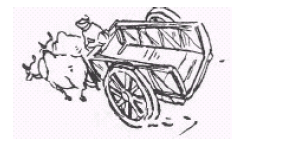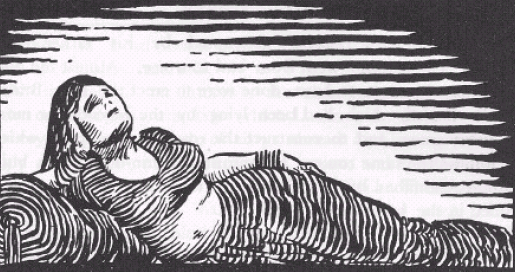Muhammad Ali Shah
This is a collection of articles archived for the excellence of their content. Readers will be able to edit existing articles and post new articles directly |
This article was written in 1939 and has been extracted from
HISTORIC LUCKNOW
By SIDNEY HAY
ILLUSTRATED BY
ENVER AHMED
With an Introduction by
THE RIGHT HON. LORD HAILEY,
G.C.S.I., G.C.I.E.
Sometime Governor of the United Provinces
Asian Educational Services, 1939.
Muhammad Ali Shah
1837—1842
When King Nasir-ud-Din Haider died by an unknown hand, drinking poisoned sharbat as he lay on his bed of silken cushions in the Farhat Bakhsh palace, the country had passed into such a state that anything might happen. Five years before, the British Government had instructed Colonel Low, the Resident, to uphold Nasir-ud-Doulah, one of the King’s uncles, as his successor. Directly the news of the King’s death was brought, Colonel Low hurried down the slope which led from the Residency to the palace.
Nasir-ud-Doulah was informed and escorted with all possible speed to the palace where he arrived at about three in the morning of July 8, only a few hours after Nasir-ud-Din had passed away. He was even then an old man and infirm, and this rude awakening in the middle of the night did not suit him ; so he retired unnoticed to a small room in the palace until morning.
Meanwhile the Resident took a firm grip of affairs at the palace, for he was expecting trouble. He placed his escort as sentries at every entrance of the palace, and a corps of Oudh Infantry took post at the main southern gate. Preparations were hurried forward so that the coronation of the new King should take place soon after daybreak.
There seemed nothing more for the Resident to do. He repaired to the verandah overhanging the Gumti, and there he sat, enjoying the cool dawn breezes and discussing plans with his assistants.
Suddenly news was brought to him that the Queen Begum, step-mother of the late King, was advancing upon the palace with a large armed band, intending to force the officials to crown a child called Moona Jan, either her illegitimate son or her adopted grandson, as King of Oudh.
Captain Paton, one of Colonel Low’s assistants, at once rushed to the south gate, collecting four men as he ran, to find a seething mob already surging round the gate. The palace guards and the police had done nothing to disperse the mob who had already forced a passage. In poured the rabble, sweeping aside all resistance, even beating Captain Paton to the ground with lathis and musket butts. They spared his body servant who escaped out of the gate in time to bring an advance party of thirty sepoys to save his already insensible master’s life from being beaten out of his body.
The rabble was by this time completely beyond control. Colonel Low was helpless and under the guard of a rebel sentry. He was forcibly taken to the Lal Baradari where the child Moona Jan was already seated, upon the throne, listening to the state band playing, incongruously enough, a discordant version of ‘God Save ihe King’! The Resident and his assistants were dragged through the unruly crowd to the throne, where Colonel Low was peremptorily ordered to congratulate the young pretender. The penalty of refusal was, he was assured to the accompaniment of much brandishing of swords and daggers, instant death.
He refused, however, to show the least agitation. Quite calmly he represented to the Begum that even if she did kill him, the British Government would exact a large fine from her. She refused to listen, but her Vakil had sense enough to realise the truth of this assertion and to see that he and his mistress would suffer a heavy penalty if any British official were harmed. He took matters into his own hands. Grasping Colonel Low by the arm, he thrust a way through the muttering mob, shouting to all and sundry that by order of the Begum the Resident was to be escorted from the throne room.
Even so, it was not an easy path. By dint of much pushing and elbowing they eventually reached the exit, accompanied by Captain Shakespeare, the second assistant. There in the garden they found five infantry companies and four guns which had just arrived from Mariaon under the command of Colonel Monteith. Colonel Low forthwith took command. He ordered the Begum and her youthful candidate to surrender, giving the old lady fifteen short minutes in which to disperse her followers. She still hoped against hope to triumph and would not obey. Colonel Low relinquished command of affairs to the soldiers.
Then and there the guns opened fire upon the throne room while Major Marshall led a party of the 35th (Company’s) Infantry to the attack, first firing upon the now panic-stricken people, then resorting to the bayonet. The swashbuckling insurgents turned into cowering refugees, fleeing in wild disorder and leaving fifty of their number dead or wounded in the building. The British casualties were three or four wounded only.
The story goes that as the sepoys charged into the throne room they saw a number of wildlooking men advancing threateningly upon them from the opposite end of the hall. Not until they opened fire did they realise that they had mistaken for the enemy their own images reflected in a large mirror.
While these people of Oudh shed their blood in a futile cause, the dead body of their late king lay in state in one part of the palace, while the new king as yet uncrowned, sat, according to some authorities, cowering in fear of his life in an upper chamber of the palace, or according to others, sleeping peacefully throughout the proceedings. Ultimately the Begum and her protégé were captured and sent to Chunar as state prisoners.
Nasir-ud-Doulah was finally crowned, upon which he changed his name to Muhammad Ali Shah. He proved worthy of the Government’s choice, for he ruled as well and as wisely as his health would permit. To some extent he refilled the state coffers, sadly depleted almost to the last few rupees by the wanton extravagance of his predecessor. The throne itself, so insecure for those who sat there, was of gold, embroidered in pearls and small rubies.
Some contemporary authorities held that he ought not to have succeeded to the throne, for Sa’adat Ali Khan had sons; and although his eldest son Shams-ud-Din died during his father’s life-time, his four sons were not out of the line of succession. Their claims to the throne of Oudh were urged by Captain White in a pamphlet entitled ‘The Prince of Oudh’. However that may be, Muhammad Ali Shah was the one ruler since his brother’s death who tried to stem the tide of degeneracy which ultimately lost the line their kingdom.
Enfeebled and old though he was, he decided to beautify the Husainabad area of Lucknow. To that end he began building a structure known as the Sat Khanda. which derived its name from the fact that it was designed to have seven storeys, from the topmost of which the King could lie on his couch and watch the progress of his building schemes. No more than five storeys were finished before he died. They stand incomplete to this day, gradually crumbling to decay in a corner of the Husainabad Park in which he built the Husainabad Tank, a graceful pool bordered at one end by another of his conceptions, the Taluqdars’ Hall; also the florid, tawdry-looking Husainabad Imambara where he lies buried.
The Honourable Emily Eden, on a tour with her brother Lord Auckland, visited Lucknow in 1837. The King sent relays of coach horses to facilitate her approach to Lucknow and caused tents to be pitched for her comfort at convenient intervals along the route. The King’s own cook also sallied forth to meet the party.
The Governor-General himself remained at Cawnpore, for etiquette did not permit the King, who was by this time bed-ridden, to receive a distinguished guest from his couch and without the pomp and ceremony which were a fitting accompaniment to the meeting of an Indian King with the British King’s representative.
In 1837 a new treaty was drawn up by which Colonel Low hoped to guard against a repetition of such misrule as the former one, but it was never ratified as the Court of Directors for some reason did not approve of it.
Muhammad Ali Shah did his best to rule well, but it was a feeble and incapable best, for the poor old man was too broken in health to accomplish much. Hakim Mahdi was reinstated as minister but he died soon after he had resumed office. His successors, worthy men enough, lacked initiative to inaugurate a new system of government.
The King was popular and had a certain amount of influence over his subjects, especially as he made determined efforts to improve the city and did not dispense all thought and substance upon his own palace. He spent large sums in making Husainabad a broad and handsome street. When he died his treasury contained about £800,000. This was substantial enough, taking into consideration his extensive building operations and the fact that he had succeeded to a bare pittance.
Prince Alexis Soltikoff visited Lucknow at the close of 1841 and describes Husainabad as a large and noisy street, terminated by a gateway of Moorish design, behind which towered slender minarets with small golden domes gleaming in the sun. At one end of the broad highway stood the Imambara, enclosing aviaries of rare and lovely birds, several edifices of Eastern design, and a small gilded mosque erected over the remains of the queen mother. Only a few months later, in May 1842, the King himself was laid to rest in a silver sarcophagus, to be succeeded by his second son.

